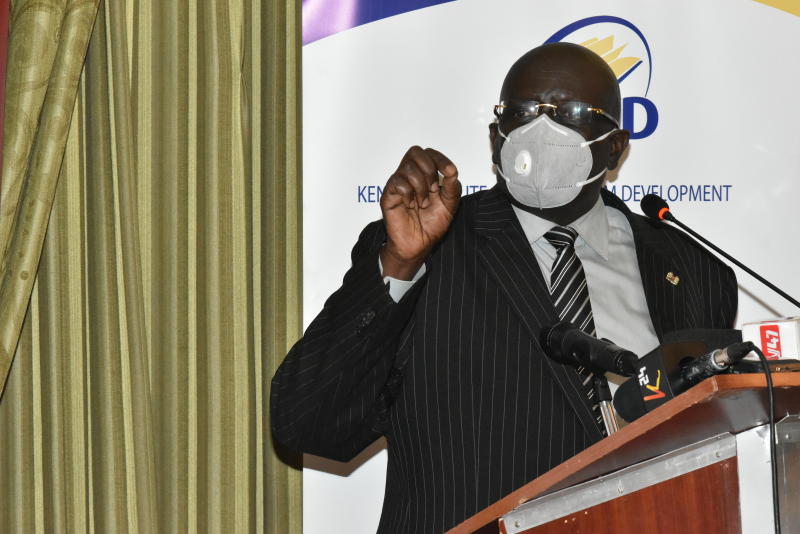×
The Standard e-Paper
Home To Bold Columnists

Education Cabinet Secretary Prof. George Magoha speaking during a meeting held by the Ministry with The Kenya Editors Guild on Competent Best Curriculum, on Tuesday, 14, September, 2021 in Nairobi. [Samson Wire, Standard].
A fresh fight has erupted between four government agencies over which of them is authorised to recognise academic papers obtained locally or from foreign institutions.